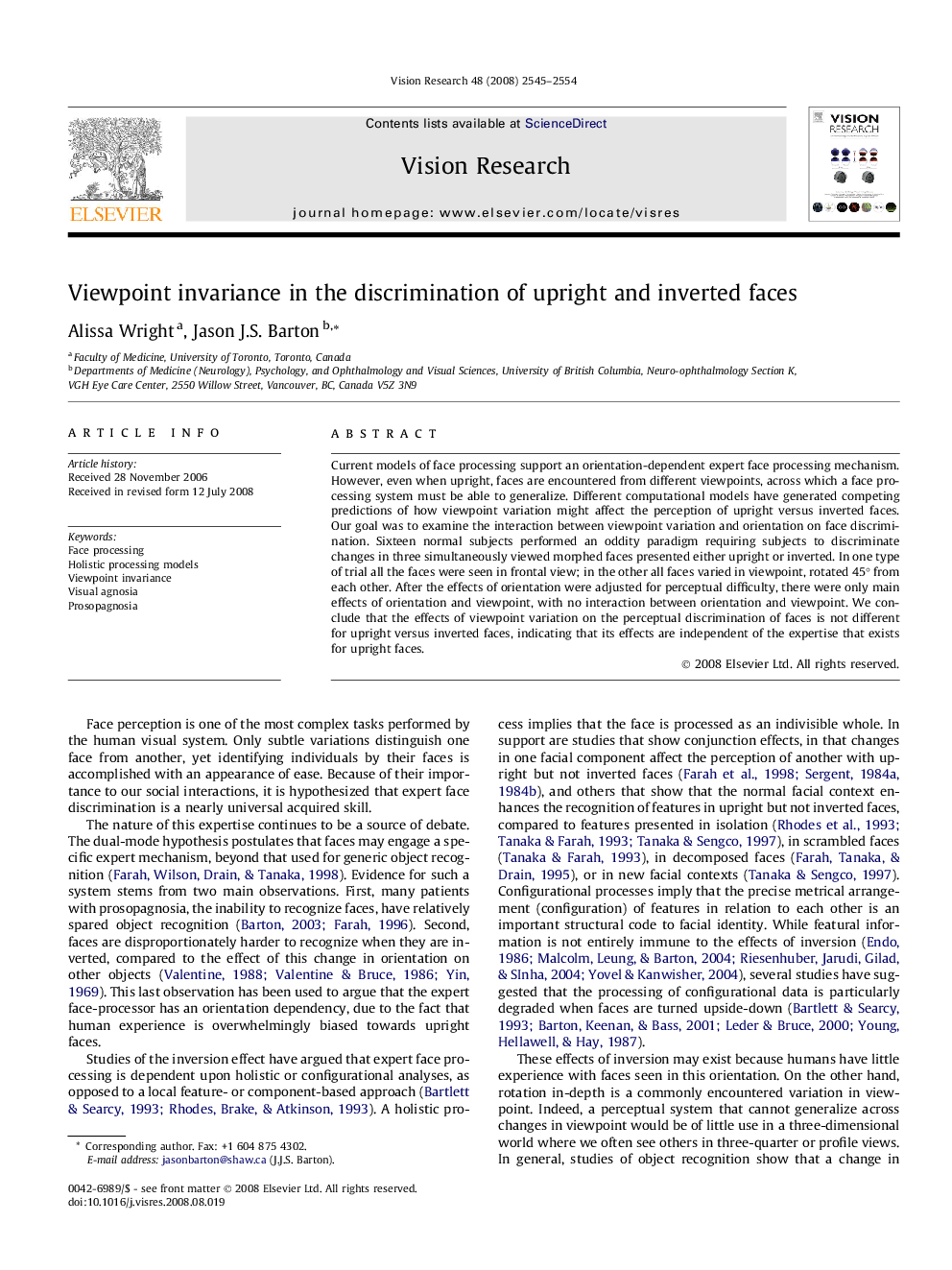| Article ID | Journal | Published Year | Pages | File Type |
|---|---|---|---|---|
| 4034921 | Vision Research | 2008 | 10 Pages |
Current models of face processing support an orientation-dependent expert face processing mechanism. However, even when upright, faces are encountered from different viewpoints, across which a face processing system must be able to generalize. Different computational models have generated competing predictions of how viewpoint variation might affect the perception of upright versus inverted faces. Our goal was to examine the interaction between viewpoint variation and orientation on face discrimination. Sixteen normal subjects performed an oddity paradigm requiring subjects to discriminate changes in three simultaneously viewed morphed faces presented either upright or inverted. In one type of trial all the faces were seen in frontal view; in the other all faces varied in viewpoint, rotated 45° from each other. After the effects of orientation were adjusted for perceptual difficulty, there were only main effects of orientation and viewpoint, with no interaction between orientation and viewpoint. We conclude that the effects of viewpoint variation on the perceptual discrimination of faces is not different for upright versus inverted faces, indicating that its effects are independent of the expertise that exists for upright faces.
